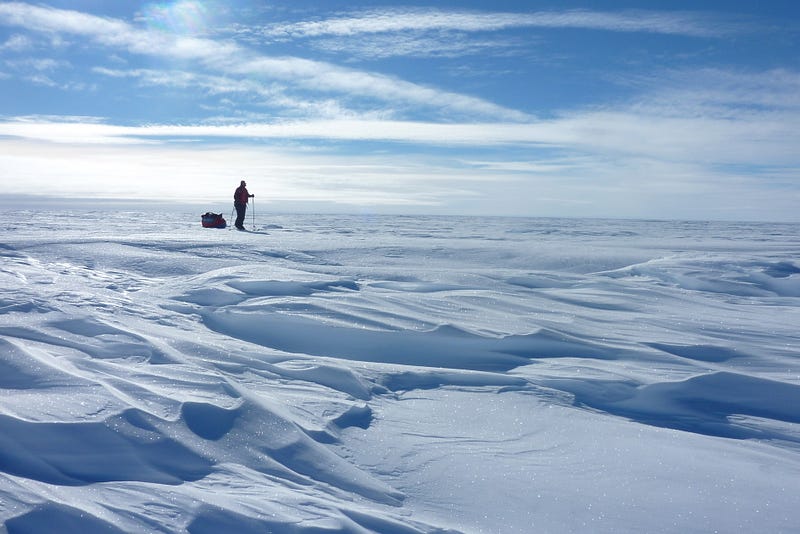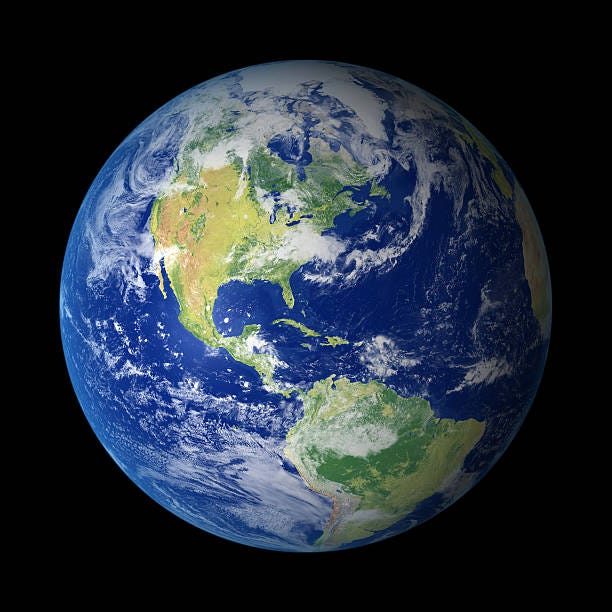Why Conserving Antarctica is Crucial for Global Climate Health
Written on
Chapter 1: The Importance of Antarctica
Antarctica, the coldest desert on Earth, may appear desolate, yet it holds a crucial role in regulating the global climate. This unique continent is characterized by its high elevation, barren terrain, and extreme temperatures, averaging around -30 degrees Celsius during winter. These harsh conditions have resulted in the formation of the ice sheet, a massive expanse of ice that covers most of Antarctica. Remarkably, this ice sheet is estimated to store about 70% of the world's freshwater.
Despite its frigid environment, very few species inhabit Antarctica, predominantly marine life such as the leopard seal and emperor penguin. The ice sheet obscures any soil that could support land-based vegetation, which limits plant growth. In this ecosystem, phytoplankton are the primary producers, leading to a marine-centric community.
Why, then, is it essential to protect this seemingly barren ice mass? The answer lies in its freshwater reserves.

Chapter 2: Ocean Currents and Climate Regulation
The currents of the ocean play a pivotal role in shaping the world's climates through a mechanism known as thermohaline circulation. This system is influenced by water temperature ('thermo') and salinity ('haline'). Variations in temperature and salt levels affect the density of seawater, causing pressure imbalances that drive ocean currents.
A well-known example is the Gulf Stream, which transports warm water from the Gulf of Mexico across the Atlantic to Europe. This current significantly moderates the European climate; without it, England's weather could resemble that of Canada.
While these currents have maintained a relatively stable pattern since the last ice age, scientists are increasingly concerned that climate change could disrupt this delicate balance. Melting ice sheets, such as those in Antarctica, contribute freshwater to the ocean, diluting salinity and altering seawater density. Even minor shifts in current direction could lead to catastrophic consequences for ecosystems worldwide, as many species may not adapt quickly enough to changing temperatures.
The repercussions of such disruptions would extend beyond wildlife, severely impacting agricultural systems that humans rely on for food. Protecting freshwater reserves like Antarctica is crucial for sustaining global environmental health.

Chapter 3: Challenges Facing Antarctica
Antarctica faces numerous threats that must be addressed for its conservation, particularly ozone depletion and global warming. The ozone layer, which serves as Earth's shield against harmful solar radiation, has been significantly compromised, especially at the poles, due to the use of ozone-depleting substances (ODS). This depletion allows more radiation to penetrate the atmosphere, gradually warming both the Earth’s surface and atmosphere.
Efforts to curb ozone depletion are essential for providing a stronger barrier against solar radiation and mitigating climate change. Regulations on ODS have shown some positive effects, but continued vigilance is necessary.
Global warming poses an additional significant threat to Antarctica, as rising temperatures accelerate the melting of the ice sheet. Reducing greenhouse gas emissions is vital to lessen the impacts of ice melt. These gases, mainly produced from burning fossil fuels, trap heat within the atmosphere. Transitioning to renewable energy sources can help combat this issue, though challenges remain in terms of societal adaptation and resource availability.
Investments in infrastructure, such as electric vehicle charging stations, and increased research funding for green technologies could facilitate a shift toward more sustainable energy practices.
Surprisingly, the most effective contribution humanity can make to combat climate change may be the passive conservation of Antarctica. With no significant human population on the continent, its preservation relies on global efforts to adopt environmentally friendly practices, thus safeguarding both Antarctica and the planet.
For further insights, explore these resources:
What Will Antarctica Look Like in 2070? These Researchers Want to Show Us.
The Ice Sheet has lost 3 trillion tons in 25 years.
Traveling to the 14 Most Isolated Countries on Earth
A journey through some of the world's most remote locations.
Dark Secrets of the World's Most Isolated Island
An exploration of the hidden aspects of life in one of the globe's most secluded areas.